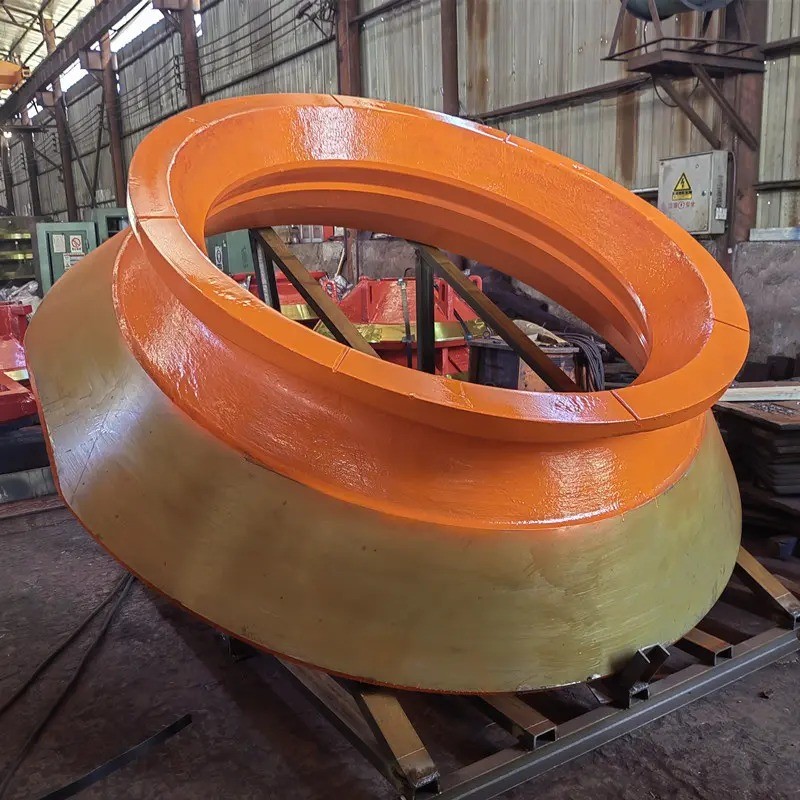High manganese and high chromium long-lasting tracks and wear armors are available in our stocks.
Fast Contact +905426661111
A crusher is an integrated machine system used to mechanically reduce large rocks, stone, concrete, or rubble into smaller, usable aggregates. The process begins with feeding raw material into a bunker or vibrating feeder. An initial crusher, typically jaw- or impact-based, conducts coarse breaking. Secondary crushers such as cone crushers then refine the material into smaller sizes. A vibrating screen classifies the material by particle size. Finally, conveyor belts transport the finished aggregates to concrete/asphalt plants, road, bridge or dam projects, quarries, mining facilities, and demolition waste processing sites. Crushers are essential in infrastructure construction, aggregate production, recycling of demolition debris, and mining operations.
What Is a Mobile Crusher, What Does It Do, How Does It Work and Where Is It Used
A mobile crusher is a transportable crushing-screening system built on wheeled or tracked platforms. Once on site, hydraulic stabilizers deploy and the unit is powered by electricity or a diesel generator. Jaw, cone or impact crushers reduce the material, vibrating screens sort it by size, and conveyors transport the output. Mobile crushers are widely used in construction and demolition sites, temporary infrastructure projects, mining preparatory works, and remote or rugged terrain due to their fast deployment, flexibility, and lower cost.
What Is a Stationary Crusher, What Does It Do, How Does It Work and Where Is It Used
A stationary crusher is a fixed crushing-screening facility with high production capacity. Raw material is delivered to bunkers or vibrating feeders. A primary crusher (jaw or impact) coarsely breaks material; secondary or cone crushers further grind it. Screening systems classify aggregates, and conveyors distribute size-graded fractions to storage or further processing. Stationary plants are equipped with automation, dust suppression, and washing systems, and are used in large quarries, concrete/asphalt plants, highway, bridge and dam construction, and mining operations where consistent, high output is required.
Differences Between Stationary and Mobile Crushers
Stationary crushers are permanent installations with substantial infrastructure, offering high throughput, full automation, and environmental controls. Their installation is time-consuming and capital-intensive but yield lower unit costs over time. Mobile crushers prioritize portability, rapid deployment, and operational flexibility, making them ideal for short-term, multipurpose projects, though they have lower output capacity than stationary units.
What Is a Rubble Crushing–Screening Plant, What Does It Do, How Does It Work and Where Is It Used
A rubble crushing-screening plant processes mixed demolition waste, such as concrete, brick, masonry mortar, and other debris, into reusable aggregates. Initial processing involves jaw or impact crushers to break down large chunks. Secondary crushers further reduce particle size. Vibrating screens classify material by size. Optional washing units remove dust and sand, and magnetic separators extract metals. The output can be recycled for use in new concrete, road fill, landscaping, or as recycled aggregates within the same project area. Rubble plants provide environmental benefits, reduce landfill requirements, and lower material costs in urban redevelopment, demolition, and infrastructure renewal projects.
 English
English
 Le français
Le français
 Türkçe
Türkçe
